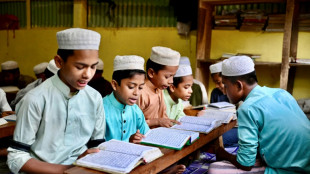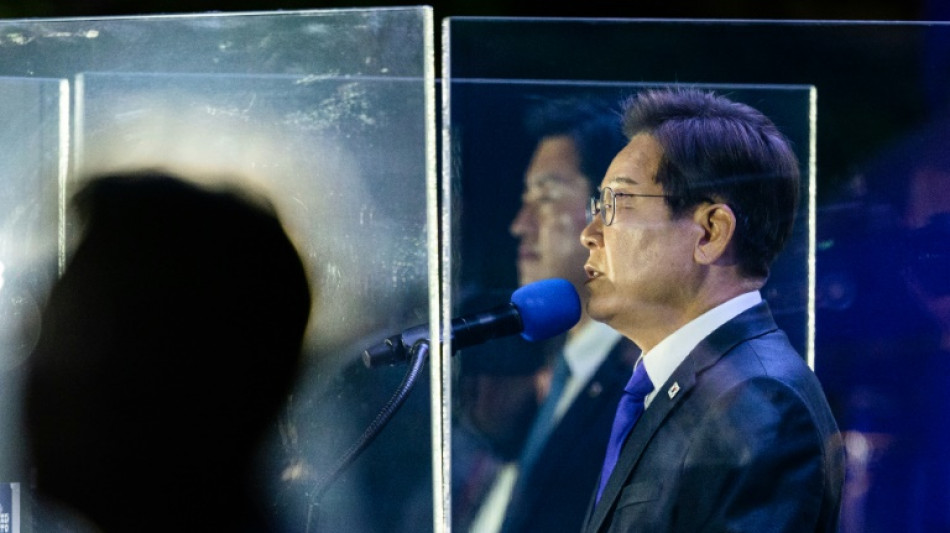
-
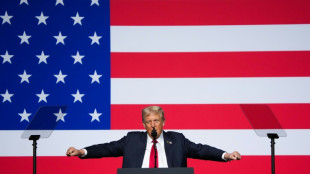 Trump tells generals US faces 'war from within'
Trump tells generals US faces 'war from within'
-
Williams absence 'could help us', say Dortmund as Guirassy back against Athletic
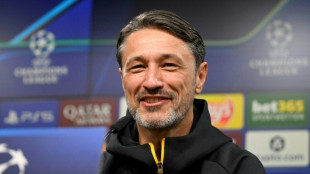
-
 Louis Vuitton unveils ethereal collection at Paris Fashion week
Louis Vuitton unveils ethereal collection at Paris Fashion week
-
ECB chief says eurozone weathering Trump tariff storm
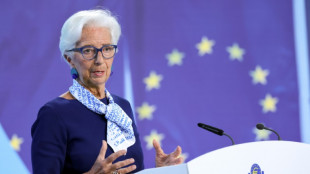
-
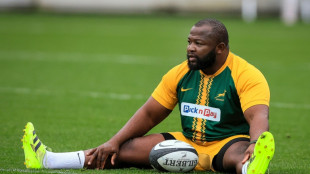 Nche starts for South Africa as they eye Rugby Championship title against Argentina
Nche starts for South Africa as they eye Rugby Championship title against Argentina
-
AI tool helps researchers treat child epilepsy
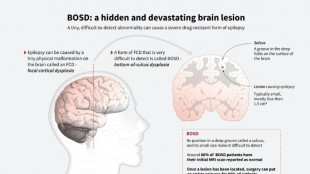
-
 Brigitte Bardot slams Saint-Tropez after decades in jet-set port
Brigitte Bardot slams Saint-Tropez after decades in jet-set port
-
Pentagon chief tells US military leaders to fix 'decades of decay'
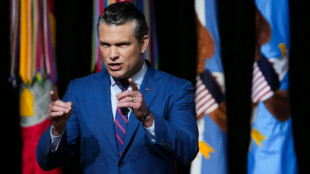
-
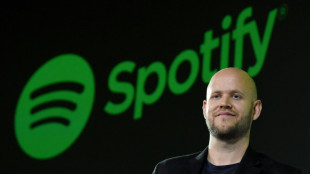 Spotify founder Daniel Ek to give up CEO role
Spotify founder Daniel Ek to give up CEO role
-
Barca star Yamal must 'work hard' to reach top level, says Flick
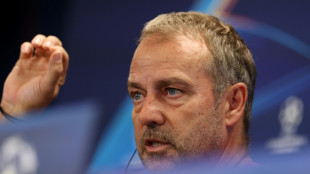
-
 EU green lights Prada's bid for Versace
EU green lights Prada's bid for Versace
-
New youth-led protests in Madagascar despite government's dismissal
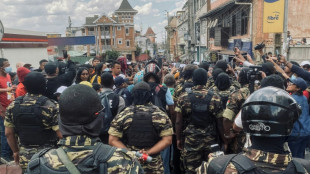
-
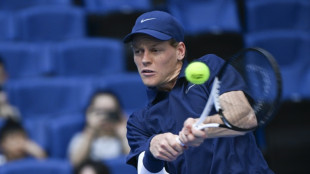 Sinner to face teenager Tien in Beijing final as Gauff battles on
Sinner to face teenager Tien in Beijing final as Gauff battles on
-
Gold hits record, dollar drops as US shutdown looms
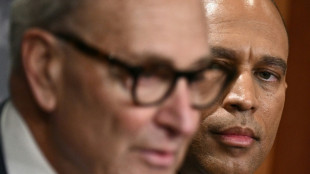
-
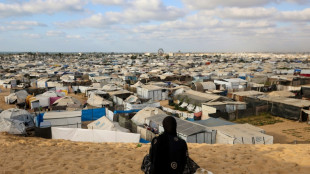 Hamas reviewing Trump's Gaza plan
Hamas reviewing Trump's Gaza plan
-
Alcaraz beats Fritz in Tokyo for eighth title of season
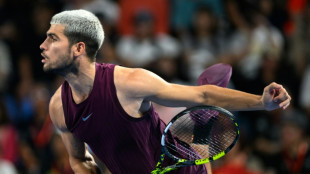
-
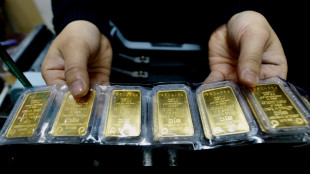 Vietnam jails former officials over gold bar graft: state media
Vietnam jails former officials over gold bar graft: state media
-
German far-right MP's ex aide jailed for spying for China
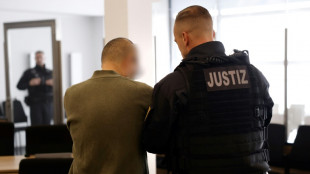
-
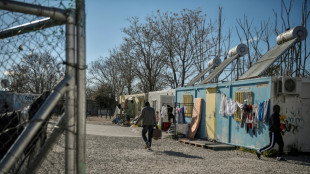 Who will take 30,000 asylum seekers? EU solidarity faces big test
Who will take 30,000 asylum seekers? EU solidarity faces big test
-
PSG's Kvaratskhelia to miss Barcelona Champions League trip
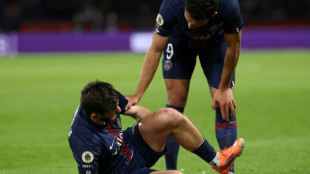
-
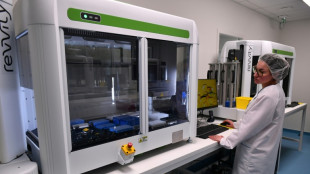 Endometriosis test backed by French government under scrutiny
Endometriosis test backed by French government under scrutiny
-
Madagascar protesters undeterred despite sacking of government
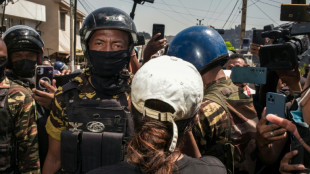
-
 Saliba signs new long-term deal at Arsenal
Saliba signs new long-term deal at Arsenal
-
Sinner powers into Beijing final as Gauff survives Bencic test
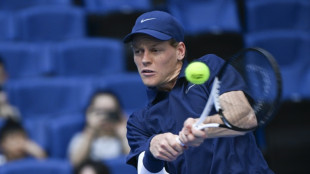
-
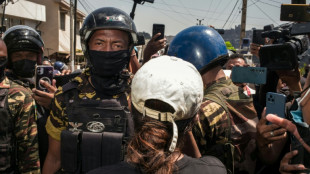 Madagascar protesters mobilise despite firing of government
Madagascar protesters mobilise despite firing of government
-
Gauff calls for shorter tennis seasons as 'impossible' to play more
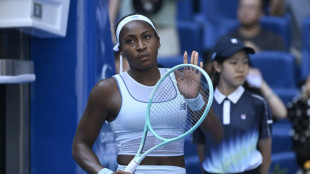
-
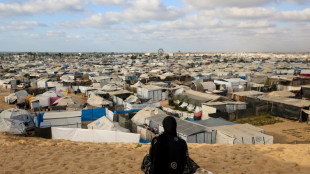 Hamas yet to respond on Trump's Gaza plan
Hamas yet to respond on Trump's Gaza plan
-
Long-lasting Typhoon Bualoi devastates Vietnam, killing 19
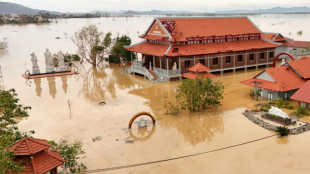
-
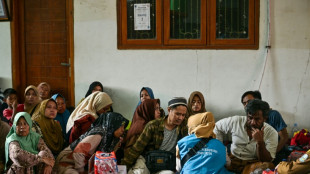 Dozens missing, three dead in Indonesia school collapse
Dozens missing, three dead in Indonesia school collapse
-
India hot favourites for home Tests against struggling West Indies

-
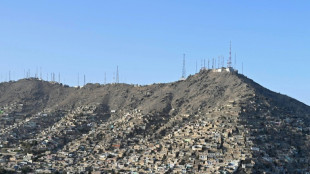 Taliban internet cut sparks Afghanistan telecoms blackout
Taliban internet cut sparks Afghanistan telecoms blackout
-
San Siro on course for demolition after sale to Inter and AC Milan approved

-
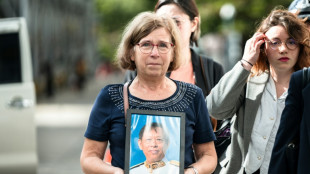 Trial opens over Bangkok murder of French-Cambodian ex-MP
Trial opens over Bangkok murder of French-Cambodian ex-MP
-
Gauff survives tense Bencic test to reach Beijing quarter-finals

-
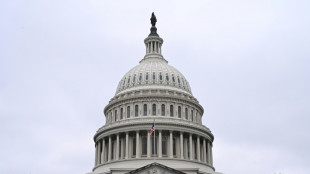 US careens toward government shutdown as both parties dig in
US careens toward government shutdown as both parties dig in
-
Wolf attack in Greece prompts calls for hunting rights

-
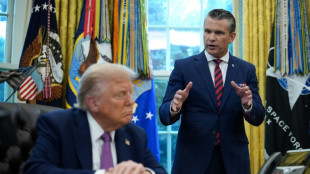 Trump to address rare mass meeting of US military leaders
Trump to address rare mass meeting of US military leaders
-
Iranian director Jafar Panahi defies censors again with new film
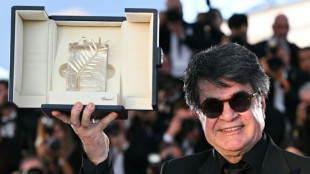
-
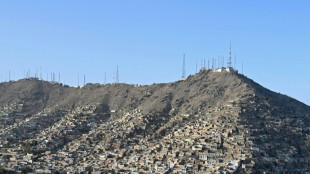 Taliban impose communications blackout across Afghanistan
Taliban impose communications blackout across Afghanistan
-
Barca's Yamal eyes up PSG after Ballon d'Or miss

-
 PSG facing injury crisis as Barcelona present first big test
PSG facing injury crisis as Barcelona present first big test
-
British bettor Bloom's football empire blossoming with Belgian club USG
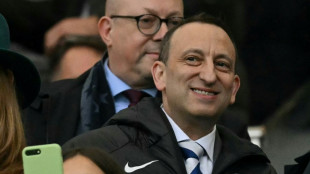
-
 US tariffs on lumber imports set for October 14
US tariffs on lumber imports set for October 14
-
Australia lose Maxwell for New Zealand T20s after freak net blow

-
 India plans mega-dam to counter China water fears
India plans mega-dam to counter China water fears
-
Colombia manufactures its first rifles to replace Israeli weapons

-
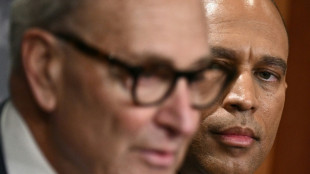 Stocks rise, gold hits record as rate cuts and shutdown loom
Stocks rise, gold hits record as rate cuts and shutdown loom
-
Dolphins star Hill suffers gruesome injury in Jets clash
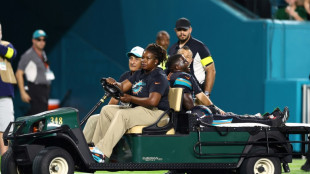
-
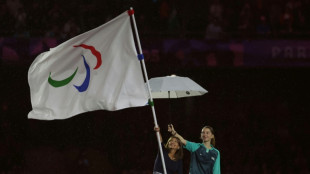 Paralympics' vote to lift Russian suspension 'bold step' as conflict rages: ex-IOC executive
Paralympics' vote to lift Russian suspension 'bold step' as conflict rages: ex-IOC executive
-
Gazans say Trump's peace plan a 'farce'
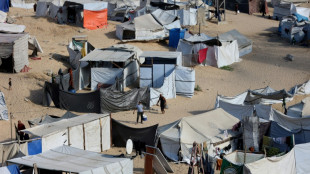

The challenges facing South Korea's new leader Lee
South Korea's incoming president Lee Jae-myung assumes office with a bulging in-tray, from a deepening economic slump and global trade war to mounting concerns over military ties between Pyongyang and Moscow.
He will also have to navigate a mounting superpower standoff between the United States, South Korea's traditional security guarantor, and China, its largest trade partner.
AFP takes a look at the new president's substantial to-do list:
- Trade tensions -
Chief among Lee's priorities will be steering South Korea's export-dependent economy -- Asia's fourth largest -- through economic turmoil sparked by US President Donald Trump and tariffs he has imposed on trading partners.
In the first quarter of the year, South Korea's economy grew less than expected as the export giant and chip powerhouse reeled from global economic tensions and chaos at home sparked by then-president Yoon Suk Yeol's brief imposition of martial law in December.
But Lee is seen by his supporters as a pragmatic and effective negotiator, with over a decade of experience as a city mayor and provincial governor.
On the campaign trail, Lee said Seoul needs to "start negotiations on tariffs immediately" with the Trump administration, promising to put "national interest first."
But he has stressed "there's no need for us to rush into a deal."
He also said it was crucial to diversify South Korea's export markets and products.
- Nefarious neighbour -
Lee's Democratic Party has taken a relatively dovish approach to the nuclear-armed North in the past, with former president Moon Jae-in holding several historic summits with Pyongyang's leader Kim Jong Un -- and Trump.
But Moon's efforts to normalise ties failed and Pyongyang has since bolstered relations with Russia, sent at least 14,000 troops to help Moscow's war in Ukraine, and declared the South its enemy state.
Lee has hinted that he will take a different approach compared to hawkish Yoon, under whom inter-Korean ties fell to their worst point in years.
On the campaign trail, Lee accused Yoon of deliberately provoking the North to justify his martial law bid -- prompting backlash from conservatives.
Under Yoon, Pyongyang blew up roads and railways connecting it to the South and erected what looked like walls near the border.
"Wasn't it out of fear that the South might push up with tanks that North Korea built those tank barriers?" Lee said.
- Superpower standoff -
Lee's tenure begins as Seoul finds itself in the middle of a growing superpower standoff between the US, its traditional security guarantor, and China, its largest trade partner.
US Secretary of Defense Pete Hegseth in May warned Beijing was "credibly preparing to potentially use military force to alter the balance of power in the Indo-Pacific".
He called on US allies in Asia such as Seoul to boost their defences in the face of mounting threats.
Lee, however, has suggested Seoul should pursue friendlier ties with Beijing, a long-time backer of Pyongyang.
He drew backlash last year by saying he would say "xie xie" -- thank you in Chinese -- to both China and the self-ruled island of Taiwan in the event of a conflict involving the two.
When asked during the campaign by TIME magazine whether he would come to Taiwan's aid if it were attacked by Beijing, Lee said: "I will think about that answer when aliens are about to invade the earth."
- Polarised politics -
Lee must also lead a nation still reeling from the political turmoil triggered by Yoon's attempted martial law in December, and deeply divided.
If the new administration too aggressively goes after the conservatives, it will "only galvanise the far-rightists, ultimately undermining efforts to reduce political polarisation," Gi-Wook Shin, a sociology professor at Stanford University, told AFP.
During the campaign, Lee said he would push to amend the constitution to make it harder to impose martial law.
He also said it was necessary to launch a special investigation to identify those who may have been complicit with Yoon's bid to end civilian rule.
- Birth rate bottomed-out -
Lee's administration will also have to deal with one of the world's lowest birth rates, a soaring cost of living and growing inequality.
During the campaign, Lee said the younger generation's "sense of hopelessness" and deepening inequality was the main cause of South Korea's declining fertility rate.
Many young Koreans are not confident that "their children's lives will be any better than their own".
Lee has pledged to create a shorter work week, extend the retirement age, expand state-led care services for children, the disabled and the elderly, offer more housing options and increased support for small businesses and young Koreans, among others.
R.Buehler--VB

